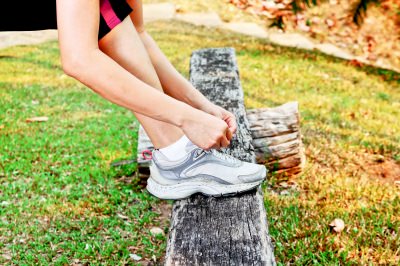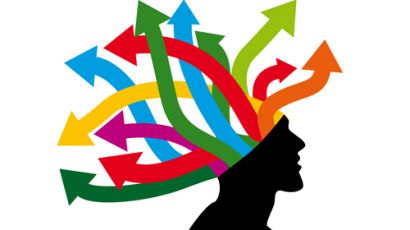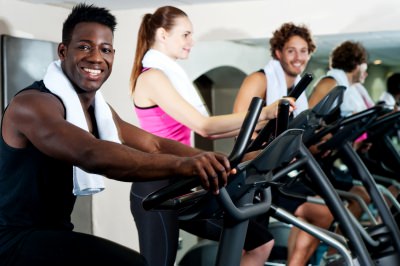How Exercise Improves Your Mental Health
|
We all know that exercise is good for your health. That is no great secret. But what about our mental
health? Can exercising help us with our emotional problems, our
intellectual problems or our addictions? The answer to all of these is a
resounding YES. Exercising is one of the best things you can do for
yourselves, not only for the sake of your physical body, but for your
mind as well. Below you'll find 11 ways exercising a few times a week
will help your overall mental health.
|
 |
|
1. Reducing Stress
Have you had a rough day? Are you
stressed? Head right out of the house and take a walk somewhere. You can
also go to the gym and run for a bit. One of the best effects of
exercising is stress relief. Getting a healthy sweat going can help
manage your mental and physical stress responses. So go ahead and work
off those anxious feelings.
2. Boosting your body's happy chemicals
Exercising is never easy, but if you
can do it, the body will reward you for it. Exercising releases
endorphins, which in their turn create feelings of euphoria and
happiness. Several studies have shown that exercise has such a powerful
effect it can even alleviate symptoms of clinical depression among the
afflicted. Many doctors recommend that people who suffer depression or
anxiety to start working out. In many cases, exercise can be just as, if
not more, effective as antidepressants. Don't worry, you don't need to
become a gym junky, just 30 minutes a few times a week can give you this
effect.
3. Boosting your self-confidence
Along with anxiety there are usually
other unwanted guests - low self esteem and low self confidence. It
doesn't matter how old you are, hopping on that treadmill and getting
those endorphins will make you feel better about yourself for the whole
day. Working out a few times a week will make you feel more secure, less
threatened by external factors and more confident in your own abilities
and self worth.
 4. Fighting depression by exercising outdoors 4. Fighting depression by exercising outdoors
While the gym is a good place to work
out, being outside has been proven by studies to improve our mood and
encourage euphoria. Find an outdoor workout that fits you, it can be
hiking, climbing, rafting or just taking a jog in a nearby park. An
added bonus to the great feeling you'll get and the reduced stress
levels is all that vitamin D you'll be soaking from the sun (don't
forget your sunscreen!) that can alleviate symptoms of depression. So
remember, a little fresh air and sunshine can do wonders for your mental
state.
5. Preventing a cognitive decline
It's not fun to talk about, but we
all know it's true. As we get older our brains a little hazy from time
to time. Aging, as well as degenerative diseases such as Alzheimer's,
kill off brain cells and shrink the brain in the process. While
obviously exercise is not a cure for any of that, they CAN help immunize
the brain somewhat against cognitive decline, boosting the chemicals in
the brain that help prevent degeneration of the hippocampus - the part
of the brain in charge of memory and learning new things.
6. Reducing your anxiety
Studies have found that a 20 minute
jog is actually better at alleviating anxiety than a warm bubble bath.
The happy chemicals that get released during and after a good work out
help us calm down in a way that a bubble bath could never do. To reduce
your sensitivity to anxiety, go on the treadmill for some
moderate-to-high intensity aerobics work outs.
 7. Boosting brainpower 7. Boosting brainpower
Various studies conducted on the
effect of cardiovascular exercise on mice and humans have revealed that
exercise can actually create new brain cells (also known a neurogenesis)
while enhancing brain performance overall. In addition, experts have
discovered that a brain-derive protein known as BDNK is increased with a
good workout, and helps in better decision making, higher-form thinking
and speed of learning. So from now on, you can call your gym pants my
"smarty-pants".
8. Fighting addiction
It doesn't matter what you're
addicted to, the effect is usually the same. Our brains are wired to
release dopamine (the neurotransmitter that makes us feel pleasure) when
we surrender to our addictions. It could be drugs, shopping, gambling,
sweets, television or a thousand other things. For the brain it is all
the same - it releases pleasure.
With drugs, our brain becomes completely dependent on these materials to release dopamine, which makes the addiction that much stronger. However, exercise has been proven to help with recovery from addiction. Short sessions can distract our brain from the pleasure it seeks by making it produce endorphins instead of dopamine. This helps the cravings and 'reboots' the body's clock, thus helping those that cannot fall asleep without their favorite addiction to relax and drift off.
9. Getting more done
Feeling like you have absolutely no
incentive to get things done? Go for a run, right now. Studies show that
people who take time to exercise on a regular basis have more energy
and get more done than their more sedentary counter-parts. An extra tip:
Experts believe that a midday exercise is the most effective in this
regard, due to the body's circadian rhythms.
10. Tapping into our creativity
Many believe that creativity is best
achieved from a relaxed state, sitting comfortably in front of a blank
page or pondering a problem. Experts would disagree. In facts, research
shows that a good cardio-vascular workout can boost creativity for up to
2 hours afterwards. So if you're challenged by a tough problem, don't
sleep on it - run first, take a shower and then go to work on it, you
might find that you are thinking more clearly and arrive at better
results.
 11. Helping others 11. Helping others
Whether it's a game of football or a
group class at the gym, studies show that exercising with others
enhances all the effects we've just discussed, especially self
confidence, pleasure and fighting symptoms of depression. Working out is
much more fun when done with others. So if you want to supercharge
these effects, find a group or a workout buddy to really get the most
out of time spent exercising.
|
Oh, thanks a lot of sharing. I just started going for sports and I had no idea for physicl activity to improve mental health at all. This blog is about to improve your health and save your nerves.
RépondreSupprimer